New impetus for higher education
With more than 15 years of experience in university teaching, Ms. Nguyen Thi Xuan Mai - An Giang University ( Ho Chi Minh City National University) commented that the guiding viewpoint in Resolution 71 has covered and correctly positioned the role and strategy of education. However, the biggest challenge lies in the synchronous implementation, especially in linking "learning with practice" and mobilizing social resources in a sustainable manner.
Affirming that the fundamental innovations in financial mechanisms and policies in the Resolution are a necessary breakthrough, according to MSc. Nguyen Thi Xuan Mai, allocating the budget based on mission, quality, and efficiency instead of the previous average allocation will encourage schools to improve their competitiveness.
In particular, the commitment to spend at least 20% of the State budget on education, with priority given to investment in universities, demonstrates strategic determination. However, a strict and transparent monitoring mechanism is needed so that resources can go to the right places and be effective in the long term.
Similarly, MSc. Huynh Ngoc Thai Anh - School of Information and Communication Technology ( Can Tho University) said that the goals and visions in Resolution 71 are a very strong driving force for higher education institutions in attracting talent and promoting research.
Specifically, the Resolution maintains a high level of budget spending on education, has a separate section for universities and gradually shifts to a mechanism of ordering according to output results; has space for public-private partnerships, funding funds, and preferential credit capital. This not only improves the quality and quantity of domestic research, but also helps attract talent.
Commenting that Resolution 71 has extremely important significance, providing strategic direction for the development of Vietnamese education in the coming time, Dr. Le Ho Son - Principal of the University of Education (Hue University) clarified the major issues raised in the Resolution.
Firstly, it is required to deeply and fully understand and consistently implement the viewpoint that education and training is the top national policy, deciding the future of the nation, placing it at the center of the country's development strategy. This is a strong political determination to create breakthroughs, not just stop at innovation.
Second, the Resolution sets clear goals with specific timelines for 2030, 2035 and a vision for 2045. The Resolution's content covers everything from universalizing preschool, middle school and high school education to building universities that meet international standards and become centers of research and innovation.
Third, the Resolution requires institutional and administrative breakthroughs. Universities are given greater autonomy, especially in recruitment, appointment, and organizational structure. At the same time, the education system is reorganized, streamlined, and weak units are resolutely dissolved.
In addition, the Resolution emphasizes the priority of resources for education. The State budget for this field will be increased, with specific targets. Facilities, laboratories, training and research centers will be heavily invested. The Resolution also expands the international vision, aiming to bring the Vietnamese education system into the top 20 countries by 2045. Universities are expected to improve their rankings on international rankings, attract good lecturers from abroad, and promote scientific publications and inventions.
“Resolution 71 demonstrates the determination to raise Vietnam’s higher education to the level of the region and the world.” Emphasizing this, Ms. Nguyen Thi Viet Nga - Member of the National Assembly’s Committee on Culture and Society, clarified: The Politburo directed the urgent development of a strategic framework for higher education development, emphasizing the issuance of special and outstanding mechanisms, as well as investment in the development of 3-5 elite universities following an international-class research model, aiming to train national talents.
In the context of limited resources, focusing on investing in building “locomotives” to pull the whole system to develop together is the right and feasible direction. Elite universities will be selected according to transparent criteria such as training capacity, highly qualified teaching staff, modern facilities, international academic environment and research ability. When meeting all conditions, these schools will not only train top human resources, but also play a leading role in innovation, technology transfer, and connection with the world's leading schools.
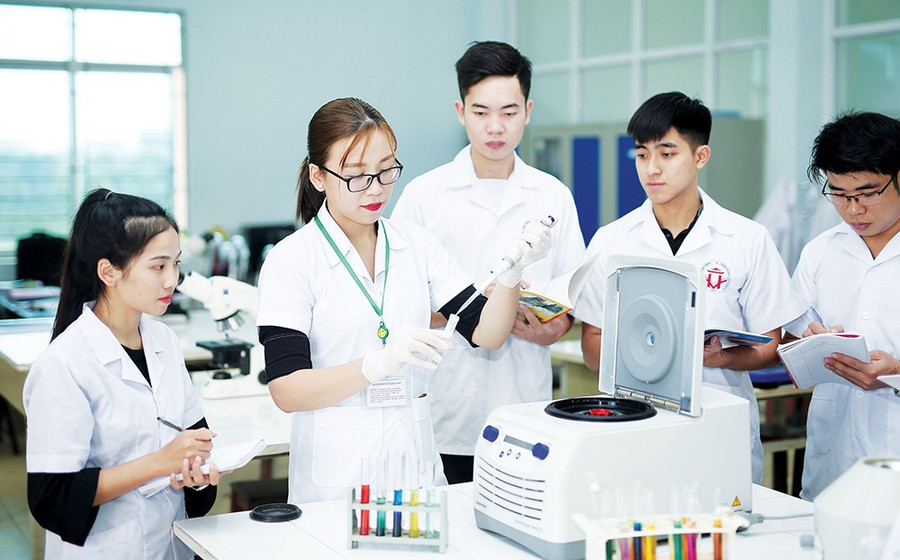
To make Resolution 71 effective
To develop successfully, Ms. Nguyen Thi Viet Nga believes that two factors are needed: a special mechanism on finance, autonomy and talent; at the same time, avoiding too much differentiation, causing the gap between elite schools and other schools to grow wider and wider.
Dr. Le Ho Son is also concerned about the conditions of large investment resources in finance, facilities, and high-quality human resources. Ensuring sufficient and appropriate resources for implementation can be a big challenge, especially in the context of economic difficulties.
In addition, although Resolution 71 emphasizes quality, the current quality assessment and accreditation system still has some limitations and has not really been effective in promoting real quality. In addition, there is the issue of correlation between autonomy and State management. Promoting autonomy for universities is a suitable trend, but there needs to be an effective monitoring mechanism to avoid abuse of autonomy or autonomy that does not go hand in hand with accountability.
In order for Resolution 71 to be effective in practice, Master Huynh Ngoc Thai Anh proposed that local agencies, departments and sectors need to build a seamless support line, so that research results can easily enter the market. This comprehensive support includes: Intellectual property consultancy, testing funds, legal sandboxes for new technologies, along with incubator programs, internal acceleration, and ordering packages from localities and businesses.
“When standards are clear and unified, the goals of improving research quality, developing highly qualified human resources and increasing innovation capacity will be more feasible and sustainable,” Master Thai Anh emphasized.
Regarding the training of Health Sciences in particular, Prof. Dr. Nguyen Vu Quoc Huy - Principal of the University of Medicine and Pharmacy (Hue University) said that it is necessary to continue researching and perfecting special preferential policies and ordering mechanisms in training medical human resources, especially medical human resources serving primary health care, preventive medicine, public health, remote, border and island areas.
Along with that, strongly innovate the training program towards integration based on capacity; strongly innovate teaching methods and assessment methods... In particular, innovate the program towards strengthening training on medical ethics, sense of responsibility, law in medical practice, code of conduct, and communication skills. Focus on developing lecturers through continuous training and education for this team.
According to the Principal of the University of Medicine and Pharmacy, there needs to be a mechanism to strengthen coordination between higher education institutions and vocational education institutions to enhance connectivity in output standards, meeting the lifelong learning needs of learners and the medical human resource needs of society.
There are mechanisms and favorable conditions to develop the practice facilities of training institutions according to the School - Institute principle, meeting the requirements of practical training. Increase investment to expand the development space for health sector educational institutions, meeting the quality standards of higher education institutions; increase investment in infrastructure and equipment to develop and improve the quality of key health human resource training institutions.
“With specific, comprehensive goals, immediate implementation and long-term vision, Resolution 71 demonstrates a strong determination to develop Vietnam's education to a new level, on par with advanced education systems in the region and the world. As a teacher, I am extremely excited when Resolution 71 was issued. This is a great motivation for the teaching staff to strive even harder, successfully achieve the set goals, worthy of the expectations of the whole society”. - Master Truong Chi Hung - An Giang University (Ho Chi Minh City National University)
Source: https://giaoducthoidai.vn/co-che-moi-thuc-day-giao-duc-dai-hoc-phat-trien-dot-pha-post750462.html


![[Photo] Hanoi morning of October 1: Prolonged flooding, people wade to work](https://vphoto.vietnam.vn/thumb/1200x675/vietnam/resource/IMAGE/2025/10/1/189be28938e3493fa26b2938efa2059e)


![[Photo] President of the Cuban National Assembly visits President Ho Chi Minh's Mausoleum](https://vphoto.vietnam.vn/thumb/1200x675/vietnam/resource/IMAGE/2025/10/1/39f1142310fc4dae9e3de4fcc9ac2ed0)

![[Photo] Keep your warehouse safe in all situations](https://vphoto.vietnam.vn/thumb/1200x675/vietnam/resource/IMAGE/2025/10/1/3eb4eceafe68497989865e7faa4e4d0e)

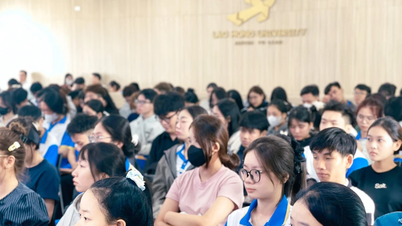


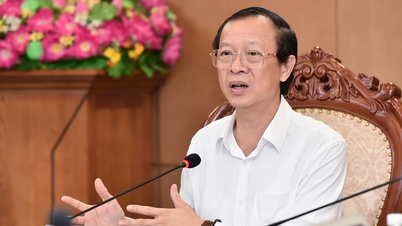

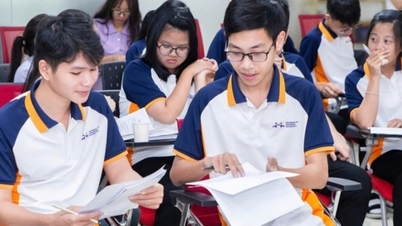



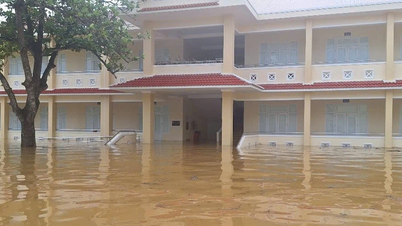

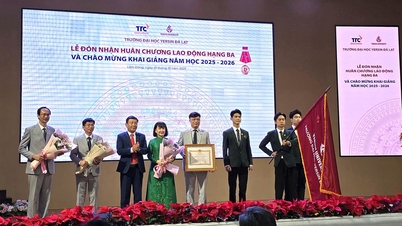

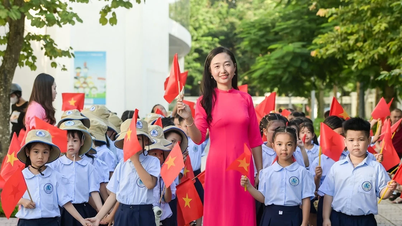




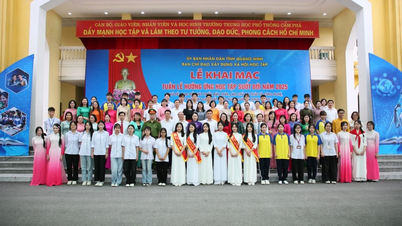
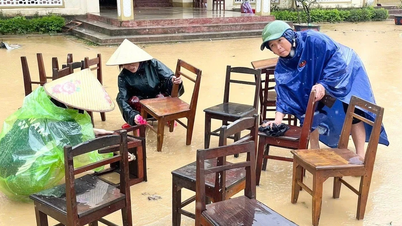
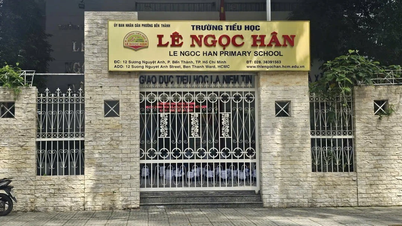
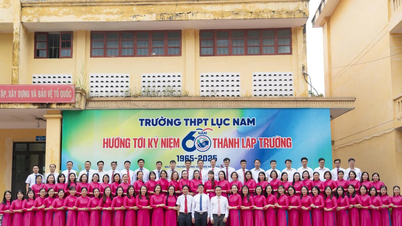
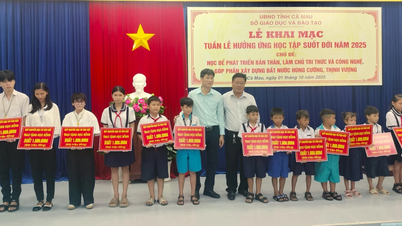
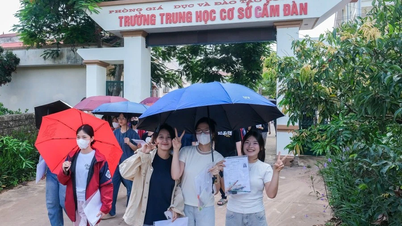





































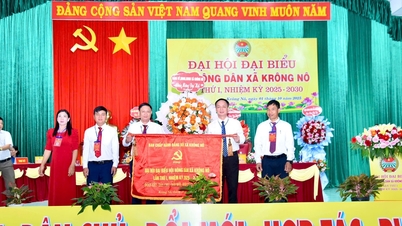





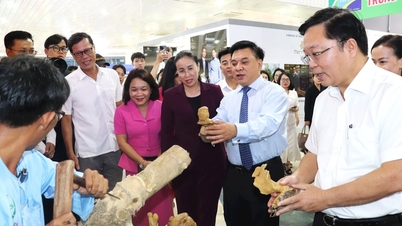

![[Infographics] An Giang Agriculture 2020-2025: Stable growth, quality transformation](https://vphoto.vietnam.vn/thumb/402x226/vietnam/resource/IMAGE/2025/10/1/bf3a77ba3a0243a697e5253ed4cd6f9c)

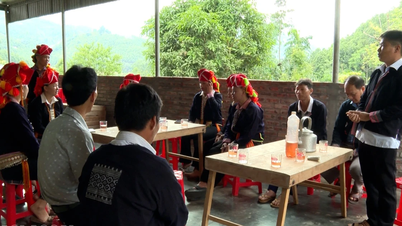















Comment (0)